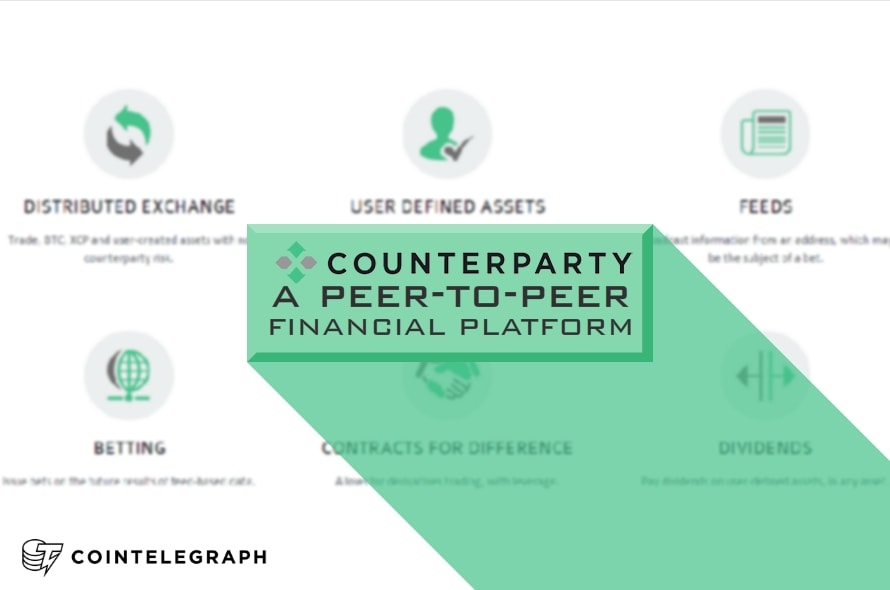Bitcoin’s development over the last few years has been explosive and the opportunities to expand its use are everywhere now – even for those who haven’t previously used the currency. In turn, Counterparty has been working on a new system to bring the benefits of blockchain technology to billions and even trillions of dollars around the world in different financial markets.
Counterparty’s main focus is to establish the world’s first peer-to-peer digital asset exchange, betting functionality, and derivatives market.
In their words, to create new, more open, and fair markets for market participants, economies, and societies. They believe that fair markets and fair money create prosperity and they hope their technology can make that possible.
To ensure the success of Counterparty, they have developed Counterwallet, a secure web wallet for managing all transactions on the world's first peer-to-peer digital asset exchange. Counterwallet is based upon an escrow system to keep all transactions safe and secure and to also eliminate the middleman, necessary in a typical market system. It provides a secure, safe, and open-source way to manage the money you use in Counterparty.
All information is encrypted client side, so none of it ever leaves your browser.
Counterparty gives users the ability to do the following:
• Declare an amount of bitcoin is equivalent to some asset and exchange that asset;
• Bet on the outcome of sporting events, presidential elections, and anything else;
• Pay dividends on user-defined assets.
Of course all of these bring additional concerns to the Bitcoin community, such as, what will people bet on given the chance? What sort of assets will people be able to create? Eliminating the middle person from a stock exchange allows you to assign unrealistic values to assets but in a free market, it should regulate itself.
It is important to realize that Counterparty does not add any additional trust to the system already in place, what it does is bring an escrow system to the Bitcoin community. It is still up to the buyer to determine what the asset is truly worth.


